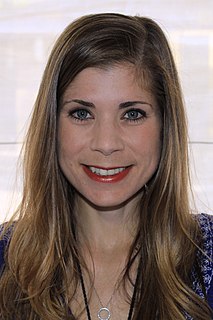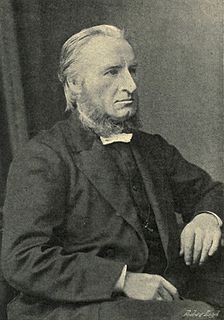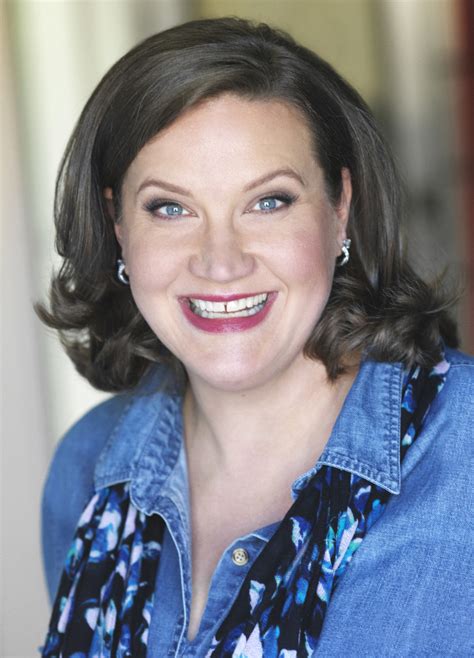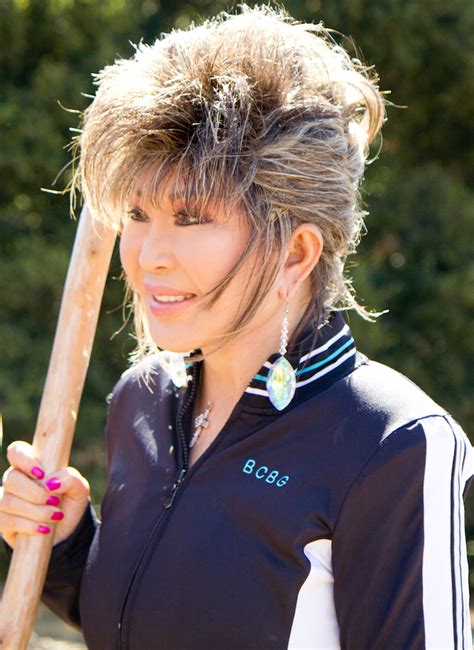A Quote by Sarah McCoy
We all tell little lies about ourselves, Our past, our presents. We think some of them are minuscule, unimportant, And others, large and incriminating. But they are the same. Only God Has enough of the story to judge our souls.
Related Quotes
I was thinking about framing, and how so much of what we think about our lives and our personal histories revolves around how we frame it. The lens we see it through, or the way we tell our own stories. We mythologize ourselves. So I was thinking about Persephone's story, and how different it would be if you told it only from the perspective of Hades. Same story, but it would probably be unrecognizable. Demeter's would be about loss and devastation. Hades's would be about love.
How often do we tell our own life story? How often do we adjust, embellish, make sly cuts? And the longer life goes on, the fewer are those around to challenge our account, to remind us that our life is not our life, merely the story we have told about our life. Told to others, but — mainly — to ourselves.
We would willingly have others perfect, and yet we amend not our own faults. We would have others severely corrected and will not be corrected ourselves. The large liberty of others displeases us, and yet we will not have our own desires denied us. We will have others kept under by strict laws, but in no sort will ourselves be restrained. And thus it appears how seldom we weigh our neighbor in the same balance with ourselves.
You are a child of God, small games do not work in this world. For those around us to feel peace, it is not example to make ourselves small. We were born to express the glory of God that lives in us. It is not in some of us, it is in all of us. While we allow our light to shine, we unconsciously give permission for others to do the same. When we liberate ourselves from our own fears, simply our presence may liberate others.
When we can let go of what other people think and own our story, we gain access to our worthiness—the feeling that we are enough just as we are and that we are worthy of love and belonging. When we spend a lifetime trying to distance ourselves from the parts of our lives that don’t fit with who we think we’re supposed to be, we stand outside of our story and hustle for our worthiness by constantly performing, perfecting, pleasing, and proving. Our sense of worthiness—that critically important piece that gives us access to love and belonging—lives inside of our story.
It is difficult to see ourselves as we are. Sometimes we are fortunate enough to have good friends, lovers or others who will do us the good service of telling us the truth about ourselves. When we don't, we can so easily delude ourselves, lose a sense of truth about ourselves, and our conscience loses power and purpose. Mostly, we tell ourselves what we would like to hear. We lose our way.
Most people use two totally different sets of criteria for judging themselves versus others. We tend to judge others according to their actions. It's very cut-and-dried. However, we judge ourselves by our intentions. Even if we do the wrong thing, if we believe our motives were good, we let ourselves off the hook. And we are often willing to do that over and over before requiring ourselves to change.
Which people take the time to care for their souls, these days? I reckon not many. But...hear this: I think that maybe in our lives - in our scrabbling for food, in the washing of our bodies and warming of them, in our small daily battles - we can forget our souls. We do not tend to them, as if they matter less. But I don't think they matter less.
We preach and practice brotherhood — not only of man but of all living beings — not on Sundays only but on all the days of the week. We believe in the law of universal justice — that our present condition is the result of our past actions and that we are not subjected to the freaks of an irresponsible governor, who is prosecutor and judge at the same time; we depend for our salvation on our own acts and deeds and not on the sacrificial death of an attorney.





































